
Active under contract in real estate means a property has an accepted offer but remains open to backup offers. This status keeps the home visible in the market, attracting more potential buyers. It allows sellers to entertain backup offers, providing security against deal fall-throughs. Additionally, active under contract listings convey a timeline for closing. Understanding this status can enhance a seller’s chances for a successful sale, and more insights follow on the benefits and processes involved.
Key Takeaways
- “Active under contract” indicates a property has an accepted offer but remains open to backup offers, increasing seller security.
- This status allows sellers to keep the property on the market, attracting additional interest and potential backup offers.
- Sellers can benefit from higher visibility, as properties in this status are still actively promoted in the real estate market.
- The duration of this status varies based on contingencies, allowing sellers to entertain other offers if the initial agreement falls through.
- Understanding this status helps sellers navigate potential deal fluctuations and secure a successful sale.
- Working with experienced buyers like Richland County Home Buyers can eliminate the uncertainty of contingency-based contracts.
What Is Active Under Contract in Real Estate?
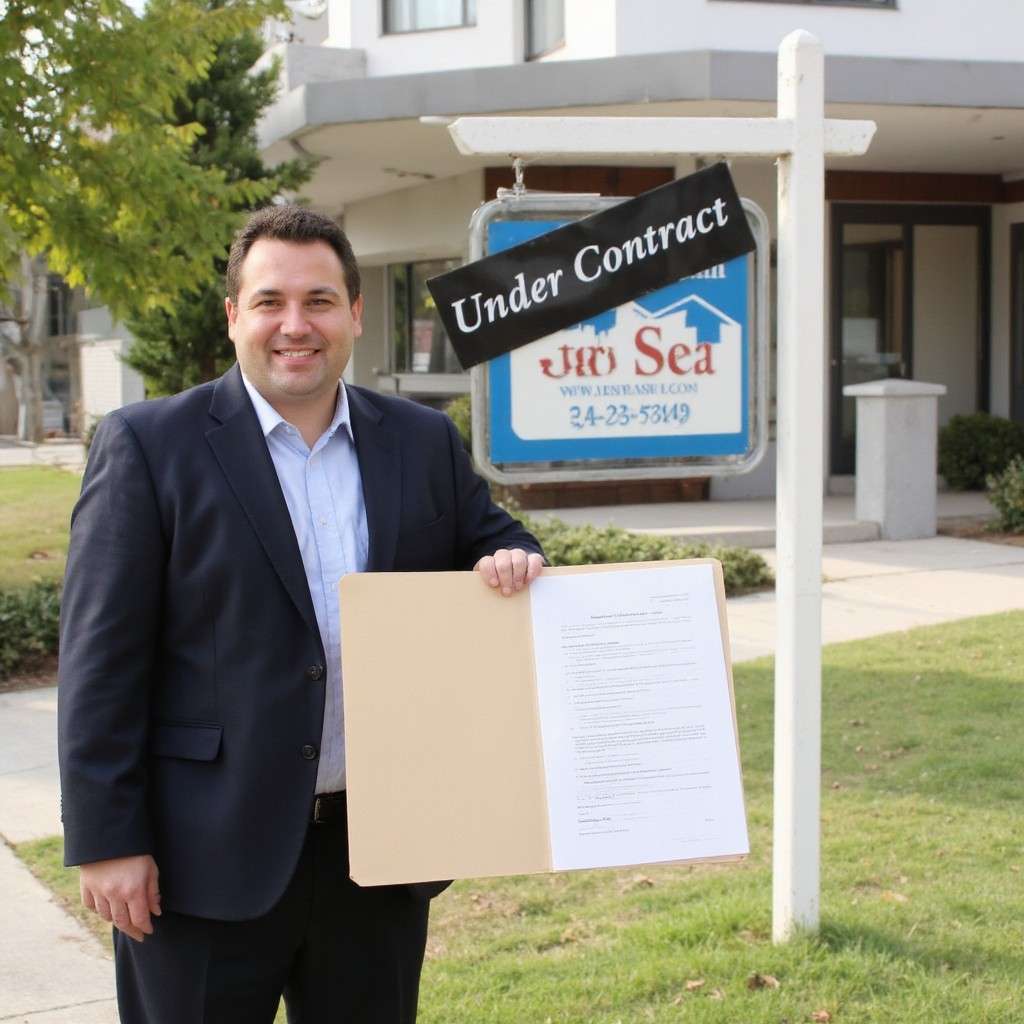
In the realm of real estate, the term “active under contract” signifies a property that has accepted a buyer’s offer but remains actively marketed while key contingencies are being resolved. This status indicates that while a purchase agreement exists, the sale is not yet guaranteed, and the property continues to accept backup offers.
Understanding what is active under contract is crucial for all parties involved in real estate transactions. Unlike a “pending” status where most contingencies have been satisfied and the sale is likely to close, an “active under contract” property faces ongoing uncertainty due to unresolved conditions that could potentially derail the transaction.
Common contingencies that keep a property in this status include:
- Financing approval – The buyer’s mortgage application is still being processed
- Home inspection – Professional property evaluation hasn’t been completed or issues are being negotiated
- Appraisal contingency – The property’s appraised value must meet or exceed the contract price
- Sale of buyer’s current home – The transaction depends on the buyer successfully selling their existing property
The timeline for how long a house remains active under contract typically ranges from 30 to 60 days, though this varies significantly based on contingency terms, local market conditions, and the complexity of the transaction. During this period, sellers benefit from continued market exposure while maintaining the security of having an accepted offer.
For potential buyers, properties with this status represent secondary opportunities – they can submit backup offers that automatically activate if the primary contract fails. This strategy proves particularly valuable in competitive markets where inventory is limited.
It’s worth noting that not all sale methods require this status. When you work with cash buyers like Richland County Home Buyers, transactions typically move directly from accepted offer to closing without contingencies, eliminating the need for an “active under contract” period entirely. This provides certainty that traditional sales cannot match.
Ultimately, being active under contract provides sellers with strategic flexibility to maintain buyer interest and secure backup positions while working toward closing with their primary buyer, significantly reducing the risk of starting the marketing process from scratch if the initial agreement falls through. For sellers who prefer avoiding this uncertainty altogether, exploring professional home buyers can provide peace of mind and guaranteed closing timelines.
How Active Under Contract Helps Home Sellers Maximize Visibility
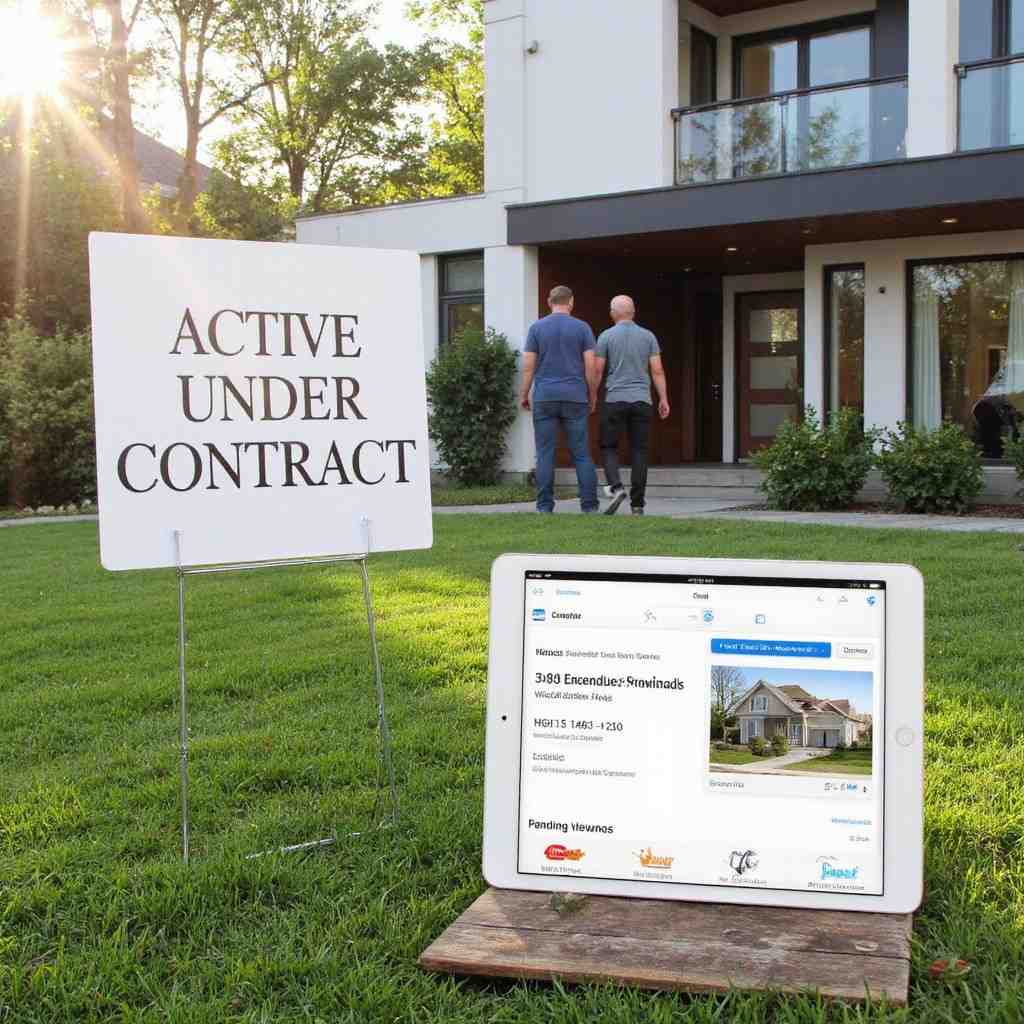
Being active under contract is a great way for sellers to keep their house visible to more buyers. This means the house stays listed for sale even though someone already made an offer to buy it.
Staying on Real Estate Websites When a house is active under contract, it stays on real estate websites where agents and buyers look for homes. This is different from houses that are “pending” (almost sold). Pending houses often disappear from searches, but active under contract houses keep showing up. This means more people keep seeing the house and might want to make their own offer.
In today’s digital age, where the vast majority of homebuyers begin their search online, maintaining this visibility is crucial. Properties that disappear from search results lose momentum and buyer interest evaporates quickly. The active under contract status ensures your property continues generating views, saves, and shares across multiple listing platforms.
Getting Backup Offers – When buyers see that someone already wants the house, they often want it even more. It’s like when kids want a toy more when they see another kid playing with it. These buyers might make backup offers – which means they say “If the first buyer can’t buy it, we want to buy it instead.” Sometimes these backup offers are even better than the first offer because people really want the house.
This psychological phenomenon, known as “fear of missing out” (FOMO), works powerfully in real estate. When potential buyers see a property is under contract, it validates their interest and can intensify their desire to secure the home. Sellers who leverage this effectively often find themselves with multiple strong backup offers, giving them negotiating power if the primary contract encounters issues.
Learning What Your House is Worth – When people keep coming to see the house, sellers can learn important things. If lots of people still want to see it and make offers, it means the price is probably right. If fewer people come, it might mean something needs to be fixed or the price needs to change. This helps sellers make smart choices before any problems happen.
The continued market feedback during the active under contract period provides valuable real-time data. If backup offers come in at higher prices, you gain confirmation that your property may have been underpriced. Conversely, if interest wanes despite the active status, it might signal that your pricing strategy needs adjustment for future listings. This market intelligence is invaluable for sellers who may need to relist if the primary contract fails.
Having a Backup Plan – The best part about staying active under contract is having extra buyers ready if something goes wrong with the first buyer. Sometimes the first buyer can’t get a loan or finds problems with the house and decides not to buy it. If this happens, the seller already has other people who want the house instead of having to start over looking for buyers.
According to industry data, approximately 5-10% of real estate contracts fall through before closing. Having backup offers lined up means you can transition to the next buyer within days rather than relisting and waiting weeks or months for new interest. This continuity is particularly valuable in markets where momentum matters.
This smart approach helps sellers stay protected and gives them the best chance of selling their house quickly and for a good price. For homeowners in communities like Mansfield, Shelby, or Galion, understanding how to leverage the active under contract status can make a significant difference in achieving optimal selling outcomes.
Active Under Contract vs Pending Listings
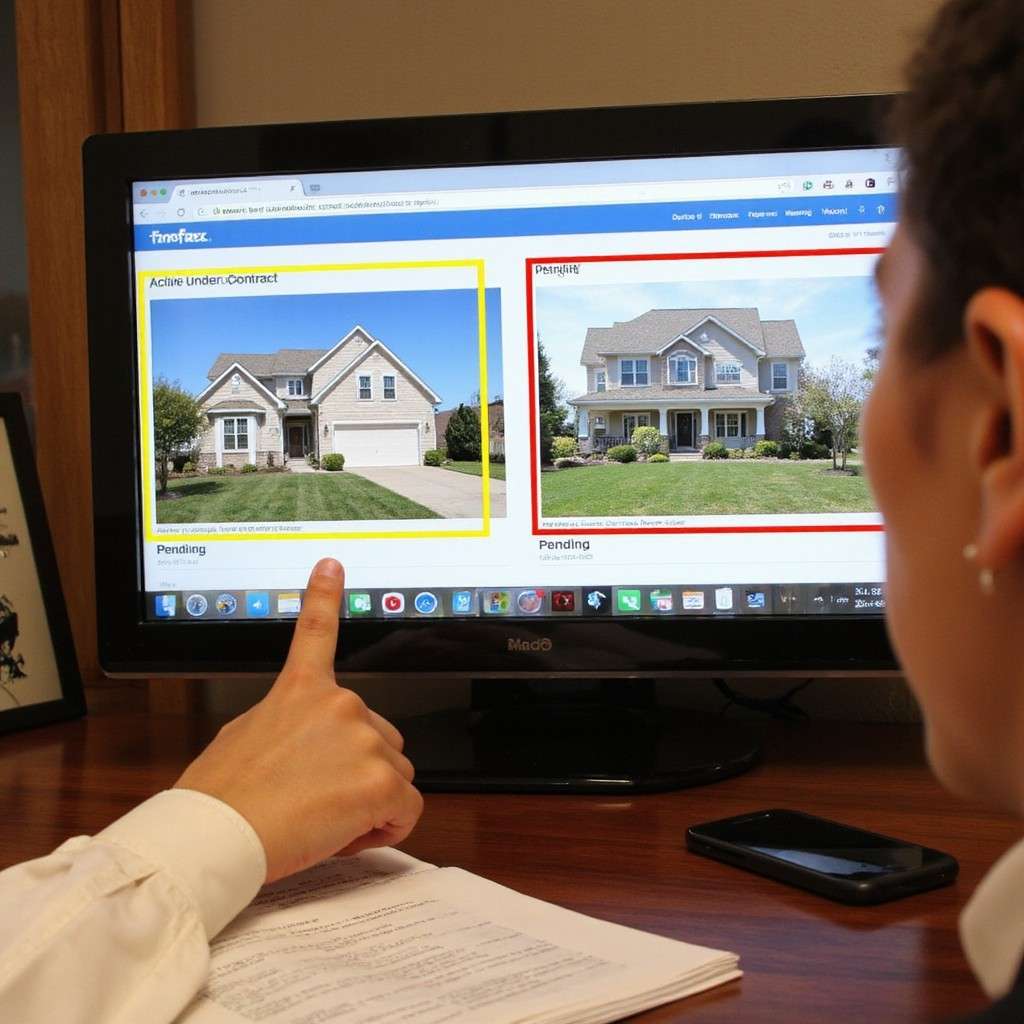
The distinction between “active under contract” and “pending” listings is crucial for both sellers and buyers navigating the real estate landscape.
An “active under contract” status indicates that a seller has accepted an offer but is still open to backup offers, while a “pending” listing means the property is no longer accepting offers and is moving toward closing.
Understanding these differences can significantly impact decision-making.
- Market Visibility: Properties listed as active under contract remain visible to potential buyers, increasing interest. Pending listings often become invisible in search results, eliminating any opportunity for additional offers.
- Backup Offers: Sellers can entertain additional offers, safeguarding against potential deal fall-throughs. With pending status, sellers have no safety net if the transaction fails, requiring them to restart the entire marketing process.
- Closing Timeline: Active under contract listings provide a clearer timeline for expected closing, enhancing planning for all parties involved. The transparency of this status helps manage expectations for everyone in the transaction.
Key Operational Differences:
The active under contract phase typically involves ongoing showings, continued marketing efforts, and active communication with potential backup buyers. Real estate agents continue promoting the property, albeit with modified messaging that emphasizes the opportunity for backup positions.
During the pending phase, marketing activities cease, showings stop, and focus shifts entirely to completing final contingencies and preparing for closing. The property effectively becomes unavailable to new buyers, and sellers must wait out the closing process hoping no issues arise.
Strategic Implications for Sellers:
Sellers maintaining active under contract status demonstrate confidence in their property while protecting themselves against deal failure. This dual approach—having a primary buyer while remaining open to alternatives—provides the best of both security and flexibility.
However, this strategy requires careful management. Sellers must balance honoring their commitment to the primary buyer while legitimately entertaining backup offers. Working with experienced real estate professionals helps navigate these sometimes delicate situations.
For sellers who want to avoid the complexity of managing multiple offers and the uncertainty of contingency periods altogether, working with Richland County Home Buyers offers a straightforward alternative. Cash purchases typically skip the active under contract phase entirely, moving directly to closing with certainty and speed that traditional transactions cannot provide.
How Long Can a House Be Active Under Contract
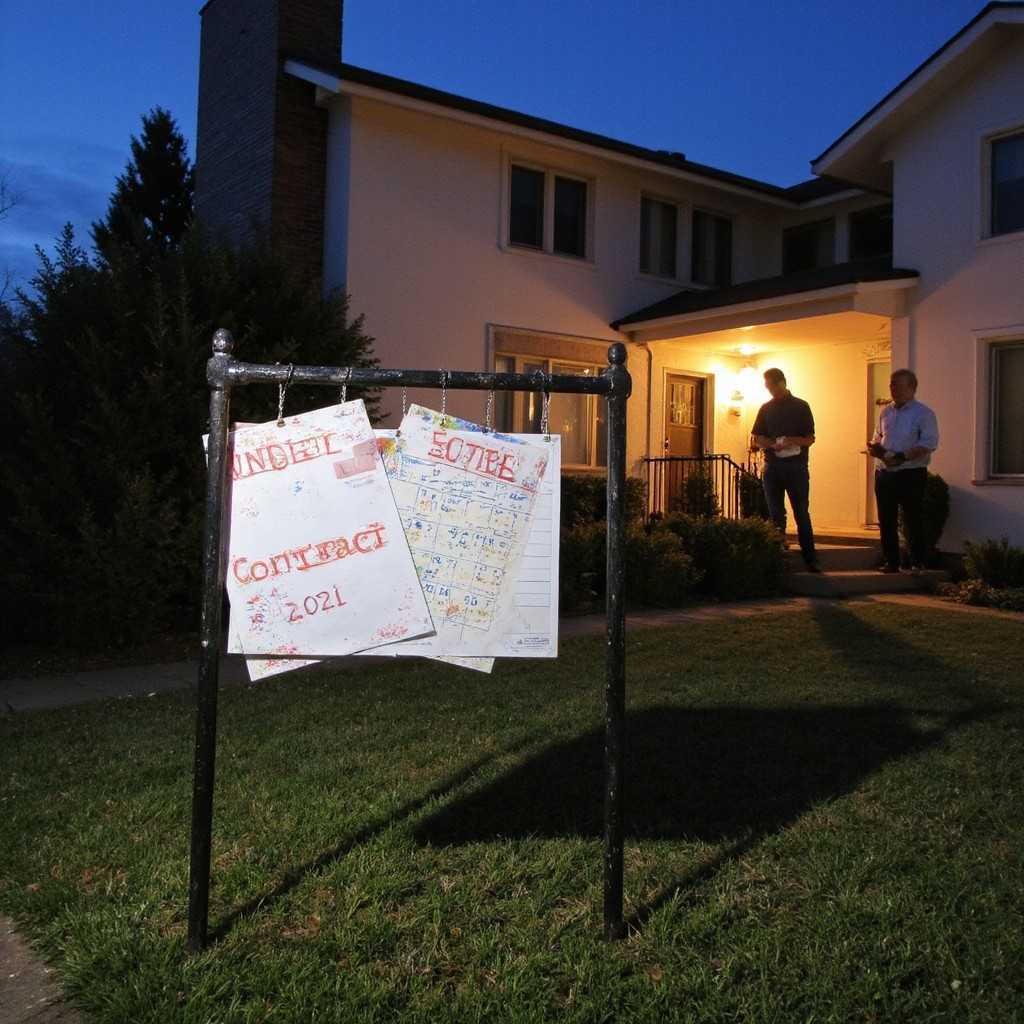
Active under contract usually lasts 30 to 60 days, but this can change based on what the buyer and seller agree on. Understanding these timeframes helps sellers plan better and know what to expect during the selling process.
What Makes It Take Longer or Shorter The time depends on different conditions the buyer needs to meet before they can actually buy the house:
- Home inspection – Usually takes 7-10 days for the buyer to check if anything is broken
- Getting a loan approved – Banks often need 30-45 days to say yes or no to giving the buyer money
- House appraisal – An expert checks if the house is worth what the buyer wants to pay (takes 1-2 weeks)
- Selling their current house – If buyers need to sell their old house first, this can take 30-90 days
Typical Timeline Examples
- Quick sales (cash buyers, no inspection): 1-2 weeks
- Normal sales (buyer needs a loan): 30-45 days
- Complex sales (buyer must sell their house first): 60-90 days
These timelines represent averages, but individual circumstances can significantly extend or shorten the active under contract period. For example, if a buyer’s financing falls through and they need to find a new lender, the timeline can extend by several additional weeks. Conversely, motivated buyers with pre-approved financing and minimal inspection requirements can close much faster.
What Happens if Time Runs Out If the buyer can’t meet their conditions by the deadline, the seller has choices:
- Give the buyer more time (called an extension)
- Cancel the contract and sell to someone else
- Keep the buyer’s deposit money and start over
The decision of whether to grant extensions or move to a backup buyer requires careful consideration. While sellers naturally want to honor agreements and give buyers reasonable opportunities to close, excessively long active under contract periods can cost sellers money through continued carrying costs and potentially missed opportunities with other buyers.
Factors That Can Extend the Timeline:
Several situations commonly lead to longer active under contract periods that sellers should anticipate:
- Complicated financing situations – FHA or VA loans often take longer than conventional financing
- Repair negotiations – If inspections reveal issues, negotiating who pays for repairs can add weeks
- Title issues – Discovering liens, easements, or ownership questions requires legal resolution
- Market conditions – In slower markets, buyers may have more leverage to request extensions
Smart Tips for Sellers Talk with your real estate agent about setting reasonable deadlines that give buyers enough time but don’t keep your house tied up too long. Many sellers also ask for backup offers during this time, so if the first buyer can’t complete the purchase, they already have another buyer ready to go.
Additionally, consider including strong deadlines and limited extension provisions in your contract. While you want to be fair, you also need to protect your interests. Some sellers include automatic penalties or deposit forfeitures if buyers miss key deadlines without valid cause.
For sellers in areas like Ontario, Ashland, or Loudonville, understanding local market norms for contract timelines can help you set appropriate expectations and negotiate favorable terms.
This way, sellers stay protected and don’t waste time if something goes wrong with the first buyer. However, if you prefer to avoid the uncertainty and potential delays of traditional contingency-based contracts entirely, exploring cash sale options with Richland County Home Buyers ensures a predictable timeline with guaranteed closing, typically within just 1-2 weeks.
Benefits of Listing Your Home as Active Under Contract
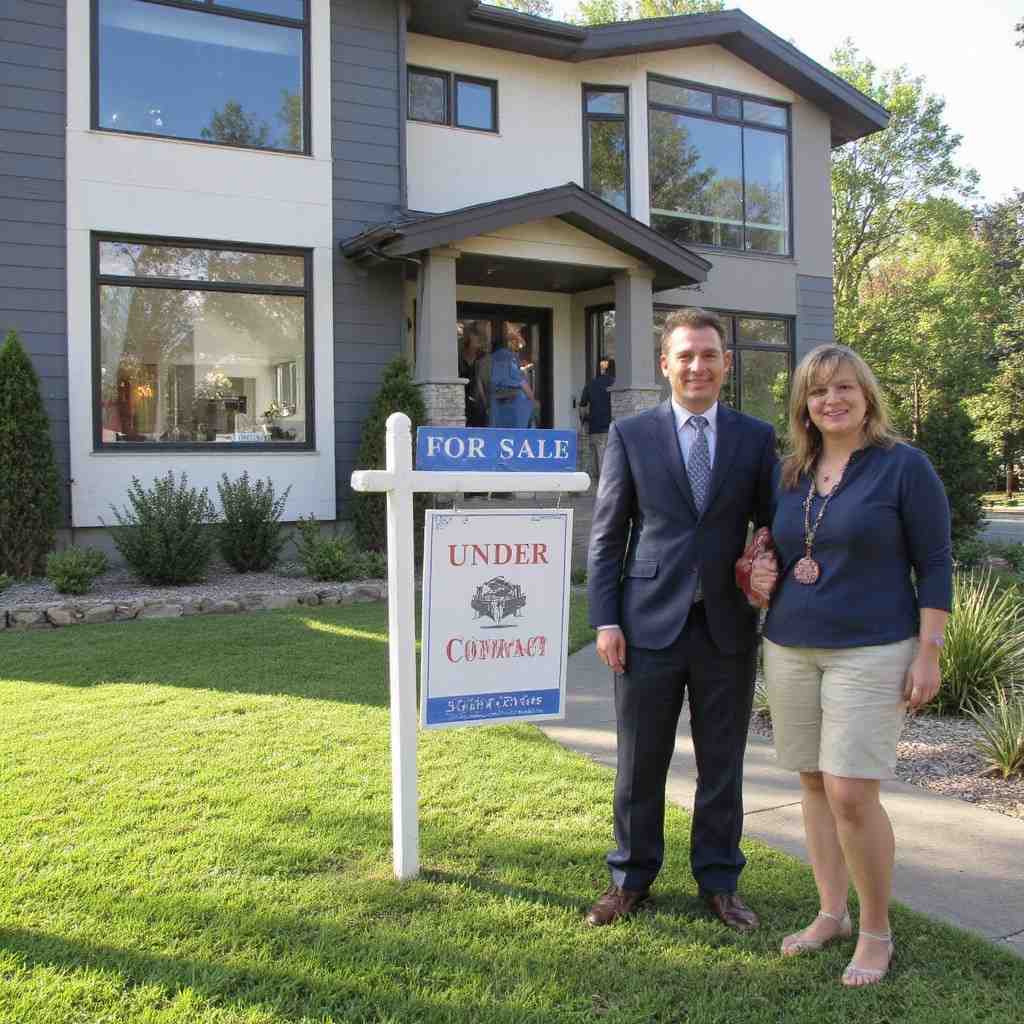
Listing a home as active under contract provides sellers with several strategic advantages during the selling process. By utilizing this status, sellers can maintain market visibility while minimizing the risk of losing potential buyers.
This approach invites backup offers, which can be beneficial if the primary contract falls through. Additionally, it allows sellers to establish a more precise timeline for closing, ensuring they can plan their next steps effectively.
- Enhanced Market Visibility: The property remains visible to interested buyers, increasing the chances of attracting more offers. Continued exposure means your listing doesn’t lose momentum during the contract period, maintaining interest that can translate into strong backup positions.
- Opportunity for Backup Offers: In the event the primary contract fails, sellers can quickly pivot to backup offers, safeguarding their sale. This safety net can mean the difference between minor delays and starting completely over with marketing, staging, and showing your property.
- Clear Timeline for Closing: Sellers gain a better understanding of the closing process, allowing for smoother transitions to their next home. Having defined contingency deadlines and closing dates helps with planning logistics, coordinating moves, and managing your own housing transition.
Additional Strategic Benefits:
Beyond these primary advantages, the active under contract status offers several other valuable benefits that sellers should consider:
Negotiating Leverage: Having backup offers in hand provides significant negotiating power if issues arise with the primary contract. If the initial buyer requests concessions or repairs, you can negotiate from a position of strength knowing you have alternatives ready.
Market Validation: Multiple offers and continued interest confirm your property’s desirability and pricing strategy. This validation is valuable both for your current sale and provides useful insights if the transaction falls through and you need to relist.
Reduced Stress: Knowing you have backup options reduces the anxiety of waiting for contingencies to clear. Instead of worrying whether your buyer will secure financing or accept inspection results, you can feel confident that alternatives exist if needed.
Momentum Maintenance: Properties that disappear from the market and then reappear often raise red flags for buyers who wonder what went wrong. Staying active under contract maintains the perception of a desirable, in-demand property rather than a failed listing.
For homeowners dealing with urgent situations—such as foreclosure concerns or the need to avoid mortgage payment trouble—the active under contract period can provide valuable time to explore all options while keeping your property marketed.
However, it’s important to recognize that this strategy works best when you have time and can afford the uncertainty of contingency-based contracts. For sellers who need guaranteed closing dates or want to avoid the complexity of managing multiple offers, direct sale options may better serve your needs.
Steps to Take When Your Property Is Active Under Contract

When a home is designated as active under contract, sellers should take proactive steps to ensure a smooth transaction process.
First, it is crucial to communicate openly with potential buyers, emphasizing that the property is under contract while still welcoming backup offers. This can help maintain interest and excitement about the listing.
Effective Communication Strategies:
Work with your real estate agent to develop clear messaging about your property’s status. This includes:
- Updating all listing descriptions to reflect the active under contract status
- Responding promptly to inquiries from interested buyers and their agents
- Being transparent about the primary contract timeline and when backup offers might become primary
- Creating a sense of urgency that encourages serious backup offers
Sellers should also prepare for potential contingencies by keeping the home in show-ready condition, as buyers may wish to conduct second showings or inspections. Even though you have an accepted offer, maintaining your property’s presentation is essential for securing quality backup offers.
This means continuing to:
- Keep the home clean and decluttered
- Maintain curb appeal through regular landscaping and maintenance
- Remain flexible for showing appointments
- Address any minor maintenance issues promptly
Additionally, staying in close contact with their real estate agent can provide valuable insights regarding the progress of the contract and any necessary adjustments. Regular communication helps you stay informed about:
- Status updates on contingency clearances
- Quality and terms of backup offers coming in
- Any issues arising with the primary contract
- Market changes that might affect your situation
Documentation and Preparation:
Sellers should organize all necessary documentation to facilitate a smooth closing process:
- Gather property records, warranties, and receipts for improvements
- Prepare disclosure documents in advance
- Have utility and service provider information ready for transfer
- Organize HOA documents and contact information if applicable
Lastly, sellers should review all contractual obligations thoroughly, ensuring they understand timelines and conditions that could impact the sale. Pay particular attention to:
- Contingency deadlines and what happens if they’re not met
- Your rights regarding backup offers and contract cancellation
- Deposit and earnest money terms
- Responsibilities for repairs or improvements agreed upon in the contract
Managing Your Expectations:
During the active under contract period, it’s natural to feel anxious about whether the deal will close successfully. Maintain realistic expectations by:
- Understanding that 5-10% of contracts fail, so backup planning is wise
- Recognizing that contingencies exist to protect both parties
- Avoiding making major commitments (like purchasing your next home) until contingencies clear
- Staying emotionally prepared for potential deal changes
For homeowners in communities like Bucyrus, Mount Gilead, or Lucas, working with experienced local agents who understand regional contract norms can help you navigate the active under contract period more effectively.
Common Misconceptions About Active Under Contract
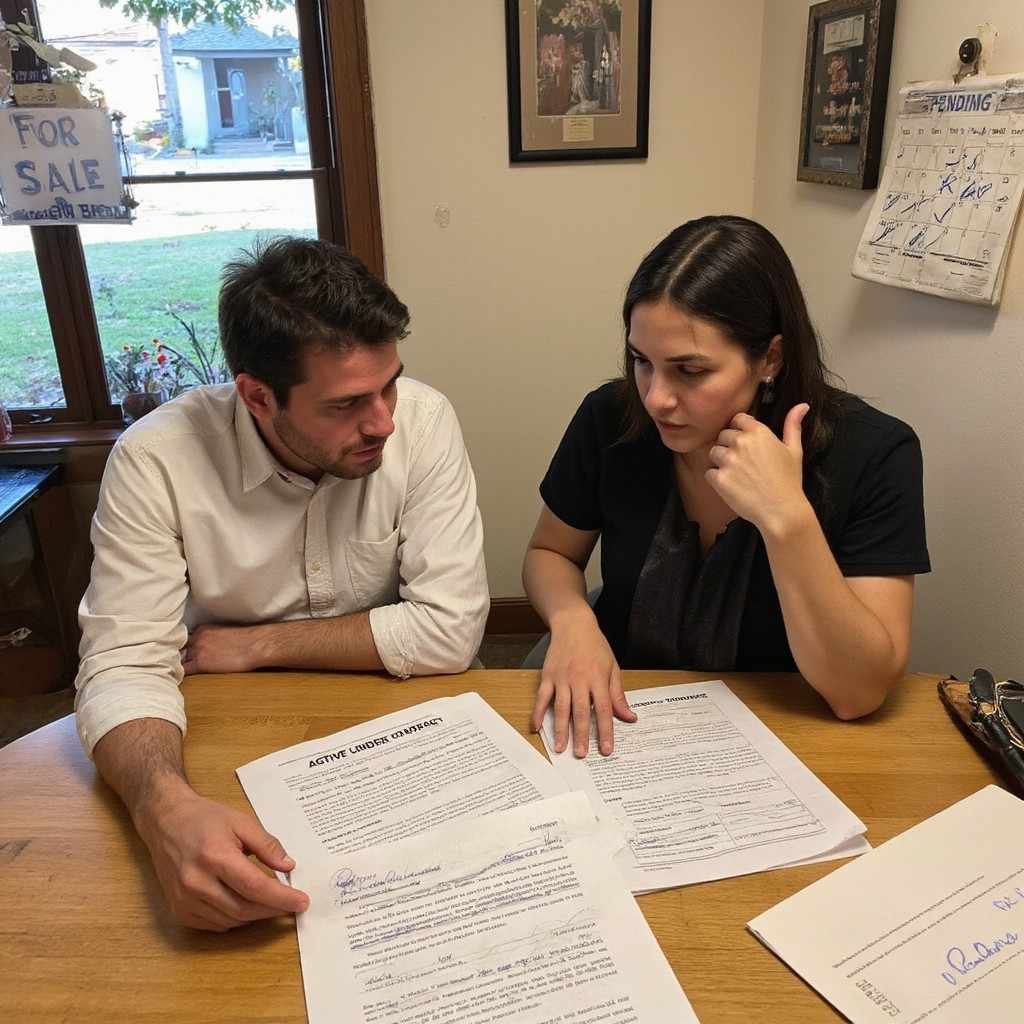
What do many homeowners mistakenly believe about a property labeled as active under contract?
Often, they assume that the property is entirely unavailable to other buyers, which can lead to missed opportunities.
In reality, the active under contract status allows sellers to keep their property visible while still entertaining backup offers.
Common misconceptions include:
- No more showings allowed: Sellers can still show the home and receive offers, even when under contract. In fact, continuing showings is encouraged to generate backup interest and maintain market momentum.
- Contract is final: The agreement can still fall through, providing opportunities for other interested buyers. Until all contingencies are satisfied and closing occurs, the transaction remains uncertain, making backup offers valuable.
- Price negotiations are over: Backup offers can still be negotiated, potentially leading to a better selling price. Buyers submitting backup offers sometimes offer better terms or higher prices to position themselves favorably should the primary contract fail.
Additional Misconceptions That Confuse Sellers and Buyers:
“I Can’t Accept Better Offers”: Some sellers believe they’re locked into the first offer they accept and cannot consider superior backup offers. While you must honor your primary contract unless contingencies fail, you can absolutely accept backup offers that would activate if the first buyer cannot close.
“Active Under Contract Means It Will Definitely Sell”: This status actually indicates uncertainty. While you have an accepted offer, unresolved contingencies mean the sale is far from guaranteed. Sellers who assume the deal is done often neglect backup offer opportunities and are caught unprepared if the contract fails.
“Backup Offers Don’t Matter”: Many sellers dismiss backup offers as unnecessary since they already have a buyer. However, statistics show that backup offers frequently become primary contracts, and having them ready can save weeks or months of re-marketing if issues arise.
“The House Must Be Perfect Under This Status”: While maintaining showing condition is important, sellers sometimes stress unnecessarily about keeping the home in pristine condition during this period. Balance reasonable maintenance with practical living—you don’t need to live like you’re constantly hosting open houses.
“I Should Stop Marketing Once Under Contract”: Some sellers immediately halt all marketing efforts once they accept an offer. Maintaining visibility and marketing while active under contract is precisely the point—it generates the backup offers that protect your sale.
Understanding these nuances helps both sellers and buyers navigate the real estate market more effectively, maximizing opportunities and reducing risks. For sellers considering whether to pursue the active under contract route or explore alternatives, understanding all available options ensures you choose the path that best serves your circumstances.
For those who find the complexity of managing primary and backup offers overwhelming, or who need certainty rather than contingency-based possibilities, working directly with Richland County Home Buyers eliminates these considerations entirely through straightforward cash purchases.
Why Some Sellers Choose to Skip the Active Under Contract Phase
While the active under contract status offers benefits, it’s not the ideal solution for every seller. Understanding when to bypass this traditional route can help you make the best decision for your circumstances.
Time Sensitivity: Sellers facing job relocation, financial hardship, or other time-critical situations often cannot afford the 30-60 day (or longer) active under contract period. The uncertainty of whether contingencies will be satisfied adds stress to already challenging situations.
Avoiding Contingency Risks: Traditional buyers include multiple contingencies that can derail sales even after weeks under contract. When buyers fail to secure financing, discover deal-breaking inspection issues, or have their own home sale fall through, sellers must start over—often having lost valuable market time and momentum.
Simplifying the Process: Managing showings, fielding backup offers, and coordinating contingency timelines requires significant time and energy. Sellers who are busy, live out of state, or simply want a straightforward transaction may prefer alternatives that eliminate these complexities.
Guaranteed Closing: Cash buyers like Richland County Home Buyers provide certainty that contingency-based contracts cannot match. There’s no loan approval to wait for, no appraisal to worry about, and no possibility that the buyer’s circumstances will change before closing.
As-Is Sales: Many properties need repairs that traditional buyers will require be completed or will use to negotiate price reductions. Selling as-is to cash buyers eliminates repair negotiations, contractor coordination, and the uncertainty about what inspections might reveal.
For homeowners in areas like Hayesville, Crestline, or Danville who want to understand all their selling options, exploring both traditional and alternative routes ensures you choose the path that best serves your specific needs.
FAQs
What does active under contract mean for buyers?
It means the seller has accepted an offer, but contingencies (like financing, inspection, or appraisal) are still being resolved. The property remains visible in the market and open to backup offers, so buyers can still express interest.
Can I still submit an offer if a house is active under contract?
Yes. Buyers can submit backup offers, which may automatically move into the primary position if the first contract falls through. This can be a great way to secure a home in competitive markets.
Does active under contract guarantee the sale will close?
No. The sale is not guaranteed until all contingencies are met and the deal moves to closing. The initial agreement can still fall through due to financing, inspection issues, or other conditions. Industry data suggests approximately 5-10% of contracts fail before closing.
How long does a property typically stay active under contract?
Most properties remain active under contract for 30-60 days, though this varies based on contingency terms, financing type, and complexity of the transaction. Cash purchases often close much faster, sometimes within 1-2 weeks.
Should I still view a property that’s active under contract?
Yes, if you’re seriously interested. Viewing the property allows you to prepare a strong backup offer and positions you to move quickly if the primary contract fails. Many backup offers ultimately become primary contracts.
What happens to my backup offer if the first buyer closes?
Your backup offer becomes void once the primary sale closes successfully. However, submitting backup offers is still worthwhile as it costs nothing and provides an opportunity to secure the property if circumstances change.
Can sellers increase the price for backup offers?
Sellers typically cannot change the listing price while active under contract, but backup buyers can offer whatever price they choose. Some backup offers exceed the primary contract price to position themselves more favorably.
Final Thoughts
Understanding the “active under contract” status is key to navigating today’s real estate market with confidence. It gives sellers the best of both worlds—a solid accepted offer plus the ability to entertain backup offers, which safeguards against unexpected deal fallout. By staying visible in the market, you maximize interest, create a sense of urgency, and keep your options open until closing.
If you’re preparing to sell your home, knowing how this status works can help you plan strategically and avoid unnecessary stress. The right approach can mean the difference between a smooth sale and weeks of uncertainty.
However, not every seller needs or wants the complexity of managing active under contract status. For those seeking simplicity, certainty, and speed, alternative selling methods exist that provide guaranteed outcomes without the contingency-based uncertainty of traditional sales.
Whether you choose to pursue the traditional route with active under contract status or prefer a more straightforward approach, understanding your options empowers you to make the best decision for your unique circumstances.
Ready to Sell Your Home?
At Richland County Home Buyers, we make the process simple, fast, and stress-free. Whether you want to sell your home quickly or explore options through our Equity Protection Program, we handle everything—from marketing to closing—so you can focus on your next chapter.
We proudly serve homeowners throughout Richland County and surrounding areas, including Mansfield, Ontario, Shelby, Ashland, Galion, Loudonville, Bucyrus, Mount Gilead, Hayesville, Crestline, Danville, Cardington, Ashley, Lucas, Perrysville, Polk, Northmor, and Jeromesville.
Unlike traditional sales that involve contingencies, uncertainty, and the active under contract phase, Richland County Home Buyers offers straightforward cash purchases with guaranteed closing dates. No financing contingencies, no inspection worries, no appraisal requirements—just a simple, transparent process from offer to closing.
Contact us today to receive a fair cash offer, or visit our FAQ page to learn more about how our process works. You can also meet our owner directly to discuss your specific situation and explore how we can help you achieve your selling goals without the stress and uncertainty of traditional sales.
Don’t let the complexity of active under contract status and backup offers overwhelm you. Reach out to Richland County Home Buyers and discover how simple selling your home can be when you work with experienced professionals who put your needs first.

